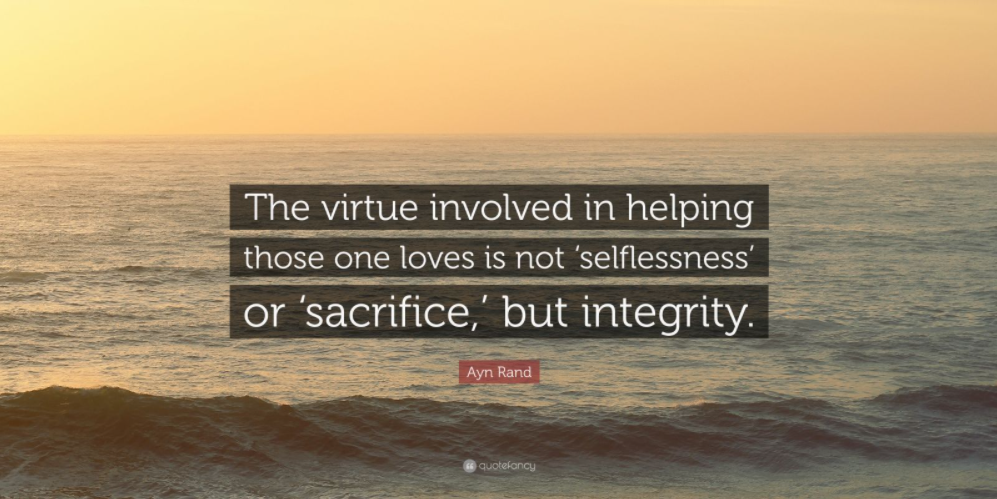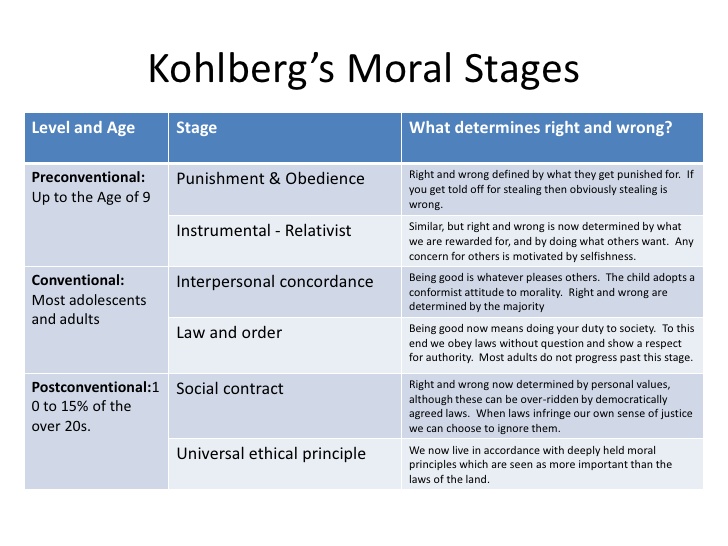Part 4 – Ethics and Morality
I probably could have ended this series with my closing thoughts in last week’s post: that parenthood is a personal decision that should not be influenced by external pressures or feelings of obligation; that choosing not to have kids can be considered a selfish choice (if we go by Ayn Rand’s definition of selfishness), but that it’s also not a bad thing; and that following your own dreams can still result in a net-positive benefit for society and the world (and can still include other types of meaningful human connection if kids aren’t part of the equation). But I still had pages of notes left over with loose ends to tie up, so this epilogue of sorts felt necessary from the standpoint of recognizing that there are bigger issues at play here – at least for me.
This whole series strayed from what I typically focus on in this blog, which I originally started as a resource for people trying to make more sustainable decisions. The past few weeks I’ve tied in philosophy, theology, and a boatload of introspection, and I think that’s because the issues on my mind here are larger than just the “kids” question – a decision that I’ve already come to terms with. I think it’s possible that this series could be more closely tied to a subconscious desire to help more people find common ground, as I discussed in an earlier post this year.[1]
After Francis’ comments, I remember talking with friends who said they were genuinely hurt by what he said, and that they felt unwelcome in The Church – for many reasons, but this latest one didn’t help. And as this blog series developed, I became fixated on finding any tiny bit of Venn diagram intersection between the philosophies of these two very different figures, both of whom I respect. To what end? Maybe to help people feel like they’re not being unfairly judged by someone in a position of power, maybe as a fun intellectual exercise, maybe to help my own mental health by bridging a gap between two rival camps in an increasingly divided and chaotic world. It’s probably D: all of the above.
Ends vs. Means
So looking back at who said what, Francis prayed that we reject selfishness and open ourselves to love and connection to others; he said that building these connections enhances our humanity and strengthens the fabric of our society. Rand spoke of selfishness as a virtue and of things we do for those we love as being acts of self-interest; she illustrated a fully functioning society built by self-interested Objectivist heroes in her seminal novel. While some of her words have idiosyncratic definitions, you still can’t get much more diametrically opposed than selfless and selfish – acting for the sake of others vs. acting for your own sake. I wondered: could they each be different means to the same end?

What is that end? For the sake of argument, I’m going to pose this: “a functioning society in which everyone is treated fairly and has the opportunity to thrive.” Not the stated goal of either philosophy, to be sure, but I think a reasonable outcome or even side-effect. Rand’s philosophy is based in self-interest, but she also recognizes that the human experience is optimized in a functioning society. Jesus’ greatest commandment was to “love your neighbor as yourself” (Matthew 22:35-40, Mark 12:28-31, Luke 10:25-28),[2] which is very focused on living with others in harmony.
I have, again, been very lucky to get feedback and thoughts from friends who are much more familiar with these subjects than I am, and I greatly appreciate their willingness to share their perspectives. I hope I am doing the arguments justice. (If I am not, let’s discuss – civilly – in the comments below!)
The Role of Motivation
Rand’s definition of “selfishness” is the reason I brought her into this series in the first place, but it’s also worth examining her definition of “sacrifice.” In Objectivism, sacrifice is the act of giving up something of greater value in return for something of lesser value. If you give up something of lesser value for something of greater value, it’s called “trade,” and that’s how commerce works. If I buy a dress from you, I value the dress more than I value the money I’m going to give you; you value the money more than you value the dress. As long as both parties value what they’re getting more than what they’re giving up, the process is simple and fair.
Where Rand took issue was that if, for example, I was expected to give up something I valued in return for something I didn’t value (or didn’t value as much). In this “sacrificial” situation, there would likely be some kind of external force compelling me to act against my desires, be it a governmental regulation, a religious morality, or a societal expectation. But, if I value another person, and I decide to give up something for that person, that’s not a sacrifice. If I had a child, and I chose to quit the job I love to spend more time with that child (because I loved my kid more than my job), it would not be a sacrifice. Further, that child would benefit, growing up knowing s/he was valued. If I made that choice because I felt compelled by society to have a kid and quit my job (against my desire), that would be a sacrifice.

Image credit: [3]
Now, Christianity is based on the concept of sacrificial love – pretty much by definition, as the religion was founded by followers of a man who purportedly died on the cross for our sins. And followers of Christ are called to love their fellow humans as God loves all of us. In Christianity / Catholicism we are supposed to love and value others; we are supposed to sacrifice and care for others – because it is what God has called us to do. If we feel good about doing a good deed, that’s a nice side benefit, but it’s not supposed to be the reason we do it.
All that being said, I’m not going to gloss over the fact that there is a carrot / stick system built into the religion too. There is punishment for sinning, and there are rewards for good acts. We are supposed to be acting out of love for others, not out of obligation, and not out of fear or punishment or hope of reward, but it is interesting to note that if you’re making a “sacrifice” here on Earth while thinking about eternal paradise, you’re still giving up something of lesser value in return for something of greater value.
There is a theme throughout all these points (and the conversations that informed them) that motivation is really the key factor here. For Rand, if someone does X, it makes all the difference in the world, not what X is, but why someone did it. Was it based on that person’s own internal motivations, or was it because of someone else’s priorities? For the pope / Catholicism, yes, there are inherently “good” and “bad” actions, but the goal is still to be doing those good actions for the right reasons (i.e. to be acting out of love, not out of fear of punishment for not doing it).
Moral Development
This theme reminded me of a topic we covered in my grad school ethics class: Lawrence Kohlberg’s stages of moral development. The idea is that as we develop as humans, our morality evolves: we start off being motivated by fear of punishment and hope of reward; the next stage is motivation out of a desire for social cohesion and following established laws; the final stage (which is believed to be rare) is acting to promote general welfare and out of adherence to ethical principles.[4]

Image credit: [5]
One of the activities in that segment was taking a test designed to assess our own progress along this moral development framework.[6] The questions in the test posed a moral dilemma, and the multiple choice answers were not potential actions we would take, but rather what factors of the situation we deemed most important to weigh when making the decision. It was a fascinating exploration of what we each brought to a given situation. When we got our scores back, there was a range throughout the class, but I could have guessed mine without looking at it. I was a solid 4.0 on the scale of 6: authority- and obedience-driven.
I like to think I’ve advanced a little bit in the last decade, especially given the added perspective my career has exposed me to since then. In the article linked above on Kohlberg’s stages of development, one particular quote stood out to me regarding the mentality associated with the highest level of development: “laws are valid only insofar as they are grounded in justice, and a commitment to justice carries with it an obligation to disobey unjust laws.” It made me smile to think that it sounded very Randian… and very Christ-like.
This isn’t really a conclusion, but more a jumping-off point for other topics. I learned more about Catholicism and Objectivism through this series, and I think my life is richer for it. Even if I don’t fully agree with Pope Francis or Ayn Rand on everything they’ve said, I think there’s more common ground there than most people realize – if nothing else, one thing they both have in spades is the strength of their convictions and that they truly live/d their values. And that’s something to which I aspire.
~
I would love to hear your thoughts on this subject as a whole or any part of it. Did you learn something new in this series? Has your opinion changed at all? Please share your thoughts below.
Thanks for reading!
[1] https://radicalmoderate.online/saving-us-getting-through-2022-together-part-1/
[2] https://en.wikipedia.org/wiki/Great_Commandment
[3] https://quotefancy.com/quote/769357/Ayn-Rand-The-virtue-involved-in-helping-those-one-loves-is-not-selflessness-or-sacrifice
[4] https://en.wikipedia.org/wiki/Lawrence_Kohlberg%27s_stages_of_moral_development
[5] https://shelleypsych.wordpress.com/yr2-week-17-forensics/
[6] https://en.wikipedia.org/wiki/Defining_Issues_Test
0 Comments